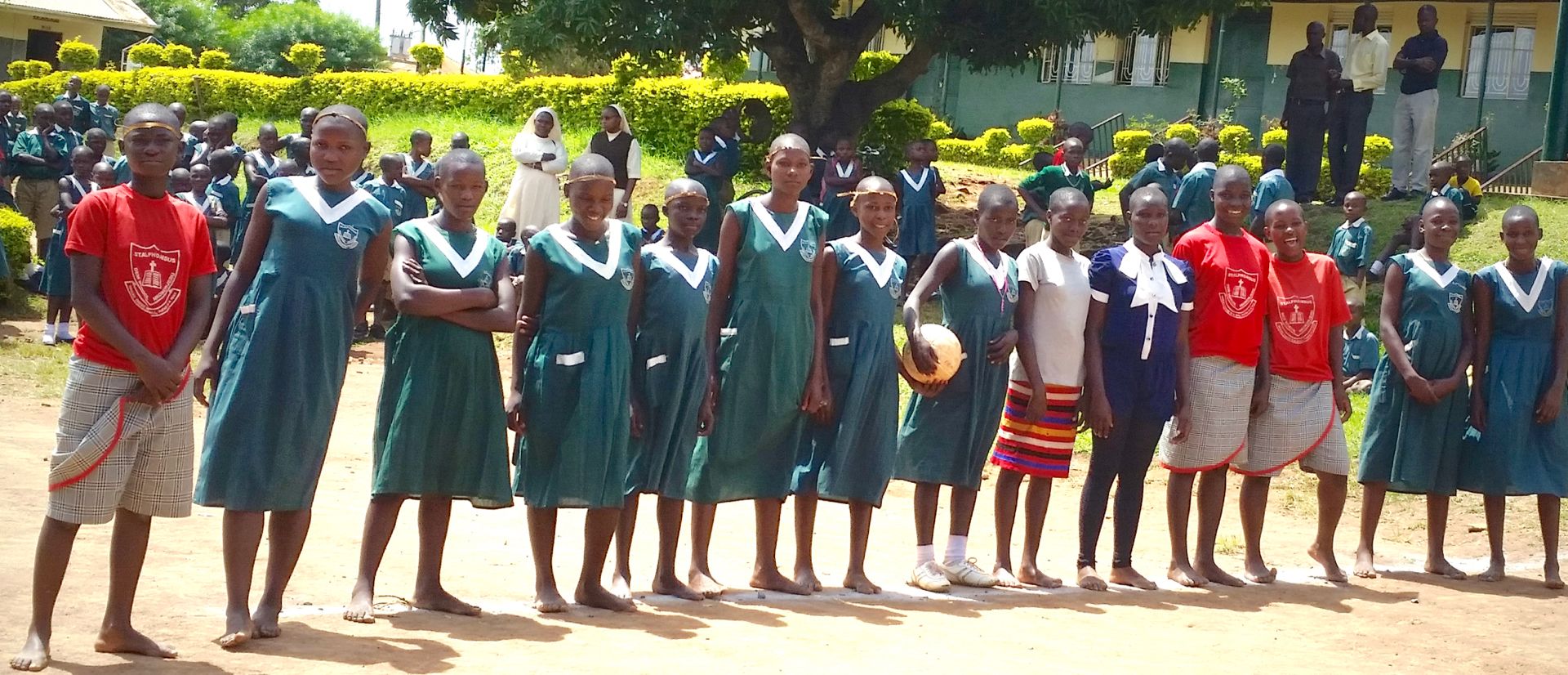Educating Children … Changing Lives
We know that sponsoring a child in need is extraordinarily rewarding.
In order to make your decision as easy as possible, here are answers to the most commonly asked questions about sponsoring a child in Uganda.
-
What is sponsorship?
The sponsorship relationship enables an individual sponsor to help support a child in need by means of monthly, semi-annual or annual contributions. Sponsorship donations go towards providing basic educational necessities such as school supplies and tuition fees, food, uniforms, and access to healthcare, so that a child living in poverty has the opportunity to overcome the barriers that keep them from attending school, getting an education, and succeeding in life.
-
What is the role of a sponsor?
A sponsor’s friendship and encouragement are priceless to a child. Many children value the relationships they establish with their sponsors as much as they value the financial support they receive from them. There is an opportunity to build a relationship between sponsor and child through regular communication via letter writing and emailing as they get older, that can be quite profound and life changing. This relationship often continues into adulthood after the student has graduated.
-
How much does it cost to sponsor a child through the LSEF program?
Sponsorship costs vary from $25 per month for primary school day students to $200 for university students. LSEF tries to meet the needs of each individual child by matching them with the right schools according to the student’s age, grade level and family circumstances. Some children are orphans with no home or family and some live with one parent or extended family members who cannot afford to send them to school.
-
Who most directly benefits from my financial support?
When you sponsor a child, the beneficiary of your support is your individual sponsored child. If the child has a family, they receive indirect benefits from their child’s sponsorship, but our focus is on the one child. Sponsorship is intended to address the unique and individual needs of each child.
The child-focused approach to fighting poverty is distinctly different from the broader community development approach. By changing the life of one child, you are giving him or her the opportunity to break the cycle of poverty, which can eventually lead to the transformation of an entire community – and even a nation. -
How much of my sponsorship dollars benefit the child I sponsor?
90% of all donations are routed directly to the child's education and personal needs. The remaining 10% covers administrative costs such as banking, postage, office supplies and website maintenance. There are no salaries or compensations paid to any members of the U.S. or Ugandan Little Sisters Education Fund teams.
-
Is my sponsorship money tax deductible?
Yes, LSEF is a 501(c)(3) organization and your sponsorship is tax deductible. You will receive a statement at the end of the year stating your total donation.
-
How long can I sponsor a child?
Typically, sponsorship lasts until a child graduates from high school, vocational training or university or moves out of our service area. Due to the transient state of many families and the often difficult circumstances in the region, we cannot always predict or guarantee how long a child will remain in our sponsorship program, although every effort is made to provide services to children for as long as possible.
When a child leaves or graduates from the sponsorship program, another child can be selected for you to sponsor that is equally in need, in the hope that you will accept the new sponsorship. -
Can a child have multiple sponsors?
Yes! Group sponsorship is a great way for organizations, offices, book clubs, extended families, etc. to get involved with making a difference in the life of a child.
-
Who selects the children to be sponsored in program?
Our program is implemented by on-site coordinators in Nkokonjeru, Uganda who are directly affiliated with the Little Sisters of St. Francis. Our coordinators have direct access to the children we serve at their schools, homes, or orphanages. They are familiar with the immediate needs and family circumstances of each individual child in the selection process.
-
May I write a letter to my sponsored child?
Yes! Corresponding with your sponsored child can be a delightful experience. The children enjoy learning about the lives of their sponsors. Writing about your own family (children, grandchildren, brothers, sisters, etc.) along with photos is always a good place to start. The children also like to learn about your part of the world, what you do for a living, your hobbies and interests, and about any pets you may have. LSEF will facilitate the exchange of letters between sponsors and students several times throughout the year.
We have some tips on how to write to your sponsored child.
Read our guidelines -
May I send packages to my sponsored child in Africa?
Due to high customs duties and the likelihood of loss, it is not recommended that you send packages to projects outside of the United States, as their receipt cannot be guaranteed. If you would like to send an additional gift, it is recommended that you send a monetary gift to the Little Sisters Education Fund program.
-
Will I receive updated information about my sponsored child?
Yes. You will receive a progress report and hand-written letter from your child after each term. The typical progress report includes information about the child’s grade level in school and their grades from each term, along with comments from their teachers.
-
Is it possible to visit my sponsored child in Africa?
Yes, it is possible to visit a sponsored child and is a wonderful way to grow your relationship. Should you decide to plan a visit to Uganda, please contact us to discuss coordinating details to meet your child.
-
If I’m not ready to become a sponsor are there other ways to help?
Any donation is greatly appreciated and will be used to off-set unexpected costs such as student medical needs and other school related activities. Donations are also welcome to help fund annual student gatherings and year-end parties to allow students to celebrate their accomplishments and to build community.

